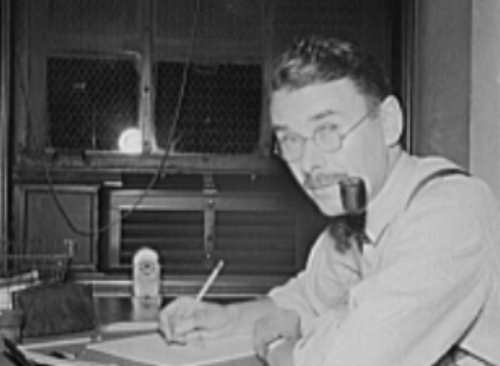Home About Broadway Off Broadway Latest Glossary Contact
ABOUT US
Treating Stage Folk Like Movie Stars (but in a Good Way)
Last updated on Sept. 12, 2022
DRUGS. ALCOHOL. CAT VIDEOS. Organized religion. Hot yoga. Internet pornography (according to certain unsavory "Avenue Q" puppets). Human beings turn in many directions to find meaning in life or for the strength just to get through the night. The lucky ones find it in theater. For them, when the lights go down for Act I of a drama or a comedy -- or when the orchestra plays the first notes of a musical’s overture -- it is a moment of prayer and faith. Worship and communion are imminent.
The Bible
IF THEATER IS YOUR RELIGION, each edition of Playbill is a sacred object. Playbill was first published in 1884. That theater season included Gilbert & Sullivan's "Princess Ida" and David Belasco's "May Blossom," his New York debut as a playwright.
For those people, there can never be enough information about Broadway, Off Broadway, Off Off Broadway, the West End, the regionals, the awards, the history, the new works, the revivals, the reviews, the playwrights and actors and directors and designers, the customs of the country known as the stage. At least we really hope so, because that's why pressnights.com exists.
The Old Ways
BROOKS ATKINSON OF THE New York Times in 1942. Like most of his peers, he wrote his theater reviews on opening night. And worked in highly unglamorous surroundings.
WHAT ARE PRESS NIGHTS ANYWAY?
In days gone by, critics would see new Broadway shows on opening night. Then they’d rush back to their newspaper offices and write their reviews, and the producers and the stars and the investors would go to big, glamorous after-parties and wait until the wee hours for the first edition of the next morning’s newspapers to roll off the presses. At which time the producers would learn whether they had a hit or a flop on their hands. (Remember that mid-20th-century New York City had a few more daily newspapers than the city has now.)
That practice changed decades ago. Critics no longer wait until opening night. They’re invited to one of several special performances shortly before opening night, so they can have a little more time to consider their opinions and write their reviews before those reviews appear, as they still do, in the morning-after-opening-night's news report. (For online publication or broadcast reviews, there’s normally an embargo, either at midnight on opening night or at the approximate time the show ends.) These special performances are called press nights.
On press nights, representatives from the show’s public relations firms normally stand outside the theater or in the lobby, depending on space and weather, and hand out tickets in small white envelopes to theater critics, awards voters and other members of the press. There’s no secrecy. The actors, the producers and the crew all know they’re there and will be judging the production by this one performance. And the journalists are not alone. The rest of the seats are usually filled with “normal” theatergoers. Often there are press nights after opening night as well, which is useful for writers (translation for younger readers: a “writer” is a content development specialist) with more forgiving deadlines or those who may be writing feature articles rather than reviews.
On press nights, pretty much everybody is on his or her best behavior. But there are always exceptions.
The Home Page
THE JANUARY 2018 PRESS NIGHTS home page, including posts on "Hamilton" in London, seven great supporting performances in New York, the "Hello, Dolly!" set and a few of our favorite lines from current productions. Remember 2018?
WHAT DOES PRESSNIGHTS.COM OFFER?
If you’re reading this any time after March 2020, we wish we could tell you. We were planning theater reviews, feature articles about the theater world, maybe interviews with the people in it — and were concentrating lately on the reviews. We had an "In Love With the Set" feature, which may come back (and may occasionally visit the past). We started writing down dialogue that deserved repeating, and that's become "These Are a Few of Our Favorite Lines." For now, the report is out of commission. Finally, there's a glossary to clarify the theater terms that matter, from dark-on-Mondays to jukebox musical. We're adding more terms and people (yes, some people need defining) every month.
Press Nights began as a questionable, irregularly scheduled series of opinionated posts at the end of the 2016-17 Broadway season, and officially launched with an actual design and some sense of structure in January 2018. The site was founded by and is written and edited by Anita Gates, who now prefers to be called A.G., in honor of The New York Times’s young publisher, A.G. Sulzberger.
The goal for this site is — and will again be — a happy mix of humor, irreverence, actual facts and giddy hero worship. We believe the likes of Cherry Jones, John Glover, Brian Stokes Mitchell, Lily Rabe, Jayne Houdyshell and Reed Birney ought to be treated like movie stars (but in a nice way).
Fearless Leader
ANITA GATES AT HER Manhattan apartment in 2017. Her first theater review for The New York Times appeared in 1997. Her last (presumably) appeared in 2017..




